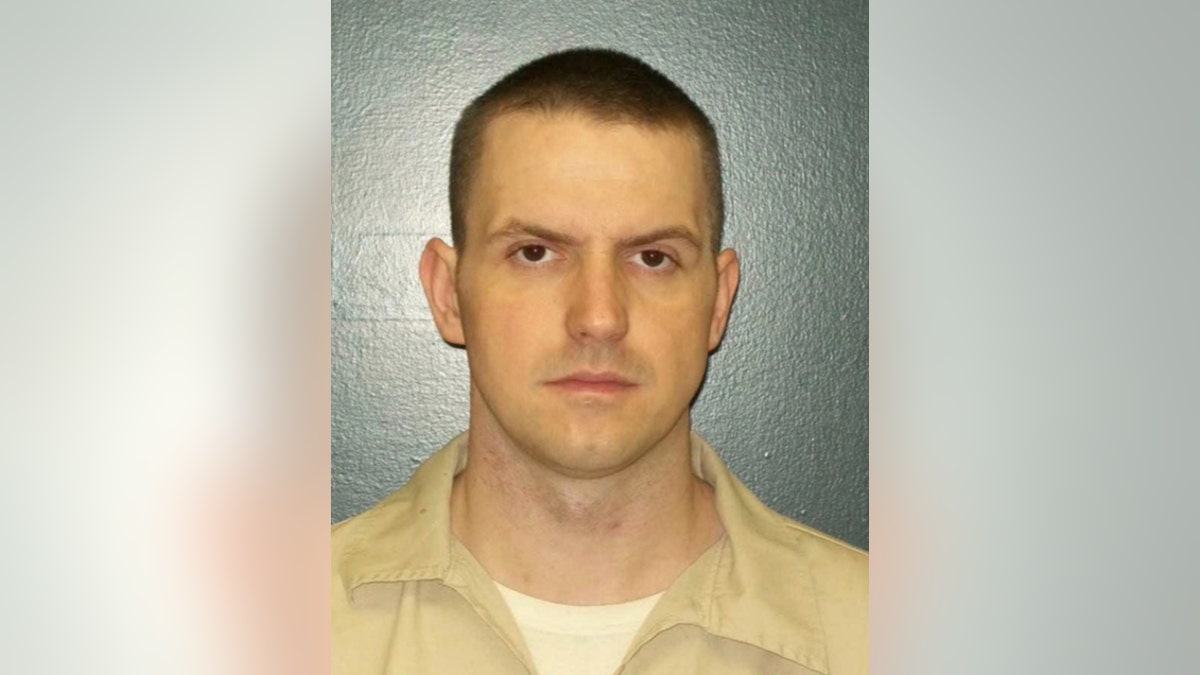
COLUMBIA, S.C. – Guards at the Kirkland Correctional Institution rushed to Denver Simmons' cell and made a grisly discovery: Four men from the unit for mentally ill prisoners had been beaten and strangled.
Simmons, 35, and Jacob Philip, 26, both already serving life without parole for double murders, were charged with the slayings.
In a series of phone calls to The Associated Press, Simmons confessed to the April 7 killings. Why? They could not endure lives in prison, he said, and wanted to be executed.
"The more people (you kill), the more chance they're gonna give it to you," Simmons said.
Simmons said they had two main criteria for choosing their victims: "We come up with who was easiest, as far as doing it to," he said. "And who trusted us."
Once they had their list, they came up with a way to lure each to their deaths.
"And we did it," Simmons said.
The victims:
John King, 52. Doing 25 years for burglary, larceny and theft. Liked to "bum coffee."
"He was smallest," Simmons said of the 5-foot-4, 132-pound King. "And he wouldn't offer much resistance."
Philip, who'd strangled his original victims, took the lead, Simmons said.
"He took his, from behind, and put his arm on his neck and just choked him," Simmons said. "It happened really fast."
They slid King under the bottom bunk and went to the common area known as "the Rock" in search of their next victim.
William Scruggs, 44. Doing life for murder. Did laundry in exchange for commissary goods.
"I said I had some cookies for him," Simmons said. "I said, `Come up to my room and I'll give you the stuff and the cookies.' And he came in a few minutes later."
Simmons said Philip grabbed Scruggs from behind and dragged him to the floor. Simmons wrapped an extension cord around Scruggs' neck.
"And, you know, he didn't suffer a long time, man," Simmons said. "I know that sounds lame."
They placed Scruggs on the lower bunk and hung a sheet. They returned to the Rock.
Jimmy Ham, 56. Scheduled for release in November after serving nine years for assault and battery, grand larceny and burglary. Liked to snort pills.
"I didn't want him on the list, because I knew he would fight," Simmons said of the 5-11, 178-pound Ham. "And Jacob, as big as he is, he's not a fighter."
Simmons said they told Ham to crush up some tablets on a stool. As he bent down, Philip lunged, but slipped.
As the two struggled on the floor, Simmons grabbed a broken broomstick he'd hidden in his cell and struck Ham in the head. When Ham opened his mouth, as if to shout, Simmons jammed the handle down his throat, "because there could be no noise."
"And he just died," Simmons said.
They laid Ham's body alongside Scruggs' on the lower bunk, and Philip asked, "Who's next?" They returned to the common area.
Jason Kelley, 35. Serving 15 years for stabbing his teenage stepson. He was a friend, but also "just annoying."
"Jacob went to get him, and he come in the room," Simmons said. "And we basically said, `Look behind the curtain.' And he literally peeked behind and he said, `What the?' And Jacob grabbed him and threw him down. And I had the broomstick from Ham. And he threw him down on the ground, and I got on top of him and pushed the broom across his neck."
As Kelley lay there -- dead or just unconscious, Simmons couldn't tell which -- Simmons rammed the stick in his ear.
Simmons said they didn't even bother hiding the body before heading to the guard station to report what they'd done.
The AP wrote to both inmates. Philips' attorney said her client is "severely mentally ill" and would not comment.
Following the killings, Simmons was transferred to Lieber Correctional Institution northwest of Charleston. It is home to South Carolina's death row.
Simmons now realizes that's likely as close as he'll get to the execution chamber.
South Carolina hasn't carried out an execution in six years. Simmons has read stories about the state's inability to secure the drugs necessary to do a lethal injection.
Even a recently confessed killer of seven got life without parole, he noted.
"The death penalty's not the death penalty anymore, you know?" he said.
He imagines he'll do the next 10 years in solitary, and probably get another four life sentences tacked onto the two he was already doing.
"Obviously, we did it all for nothing," he said. "And I guess that makes it even worse."

